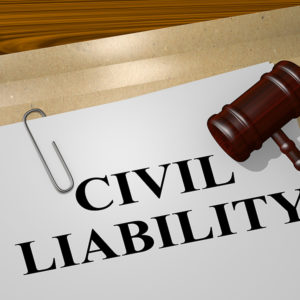As every state across the country begins to implement economic reopening plans, a large question looms: How will business operations function under the increased concern of civil liability?
The truth is that providing well-crafted liability protections would not function at a get-out-of-jail free card for businesses, but rather help ensure that businesses can reopen without fear and help get the economy humming again.
However, these kinds of laws are going to be best handled at the state level. A federal liability protection law would be attempting to institute a one-size-fits-all approach to an issue that needs caution and nuance, not blunt federal mandates.
Several states have granted liability immunity to healthcare facilities and their employees. Other states, such as Utah, North Carolina, Oklahoma, Louisiana and Wyoming, have proactively passed legislation that provides broad liability immunity, affording businesses much-needed peace of mind.
It should be noted that these various pieces of legislation are not applicable in cases of willful misconduct, reckless or intentional infliction of harm. Lawmakers in states that have passed liability protections have consistently limited liability changes to apply only to COVID-19 cases and have excluded protections against those demonstrating gross negligence.
Congress — specifically Senate Majority Leader Mitch McConnell — has expressed strong support for providing a liability shield for businesses nationwide, stating: “Unless you’re grossly negligent or intentionally engage in harmful behavior, you shouldn’t have to be penalized by getting sued on top of everything else, so that’ll be in there, I guarantee it.”
While it is expected the next COVID-19 package passed by Congress will include a protection against civil liability, some states are not waiting for the feds to act. Georgia, Arizona and Kansas are in the process of passing similar legislation.
Undoubtedly, McConnell’s concerns are warranted. As businesses attempt to rebound from lengthy closures during quarantine, combating lawsuits — particularly when one considers the difficulty in proving how the virus was contracted — is the last thing our economy needs.
McConnell has suggested that additional state funding be conditional upon states enacting “legislation that would provide liability protection to businesses and workers,” thereby incentivizing states to act without delay, while leaving the policy specifics in the hands of state legislatures.
Should the federal government choose to tie funding to states setting up liability systems, it is incumbent upon Congress to limit the fine print and give the states as much flexibility as possible.
In prescribing what would qualify as adequate liability protections, the federal government must enact broad requirements, affording states maximum flexibility. Tort law differs significantly from state to state, and adding complications would not be helpful to struggling businesses.
Leaving the legislative provisions to the states, with minimal strings attached, is the ideal solution. After all, in recent years, multiple states have passed tort reform legislation, adopting best practices and avoiding overly litigious systems.
While McConnell is correct that liability protections are needed, states — not the federal government —-are best suited to address this policy matter. A one-size-fits-all limitation on liability will likely result in states needing to enact legislation that provides clarity to a federal mandate.
In the meantime, while businesses await action from Congress or their states, many are attempting to figure out how to best protect themselves from potential lawsuits — implementing temperature checks, requiring patrons and employees to certify they don’t have COVID-19 symptoms, in addition to having customers sign liability waivers prior to entry.
It remains to be seen whether or not waivers will actually protect businesses from lawsuits. Some states have a long history of enforceable liability waivers, while many others do not. Legal variation from state to state is the best reason that the federal government should leave the scope of COVID-19 liability and negligence in the hands of state policymakers.

